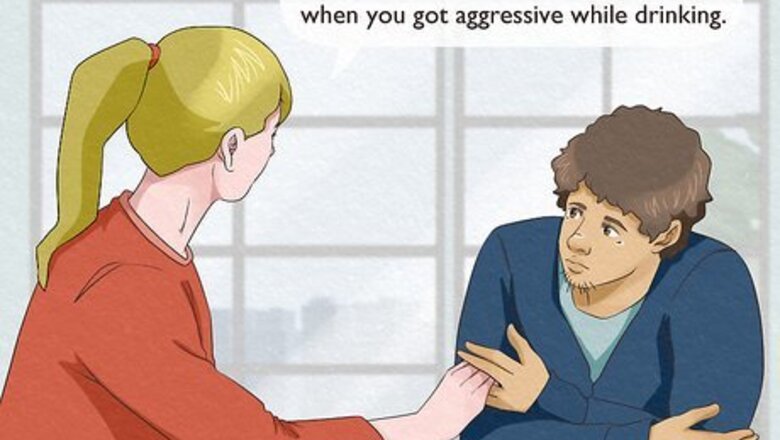
views
Talk to the person while they're sober.
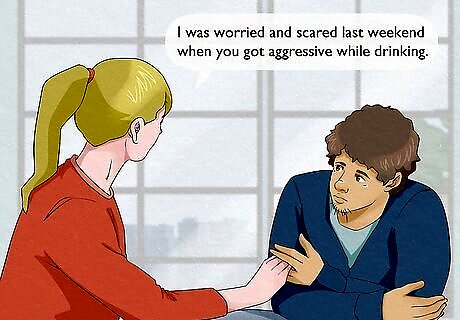
If you want to raise the issue of alcohol, do it when they're not drinking. If you have a friend or family member who seems to be drinking too much, you might want to draw this to their attention. Showing them how their drinking is affecting those around them might be enough to get them interested in quitting—but you can't have this conversation when they're currently under the influence. Use "I" statements to put the focus on you and how their drinking affects you, rather than being accusatory. For example, you might say, "I was worried and scared last weekend when you got aggressive while drinking." Let them know that if they're ready to quit (or even just cut back), you'll be there for them and support them in any way you can. If the person resists or seems unwilling to quit, set firm boundaries related to their alcohol. For example, you might say, "It's your decision not to quit, but I'll no longer cover for you if you're late to work because you were out drinking the night before."
Point the person to helpful resources and tools.

Look up local groups or treatment centers that might help the person. A lot of times, someone makes the decision to quit drinking but doesn't know where to turn for any help they might need. You can help your friend or family member by researching the issue and showing them websites they can check out or phone numbers they can call. This just takes some of the work out of it for them. Sometimes, just making the decision to quit can seem like a lot and your friend or family member might be too mentally exhausted to think about looking these things up right now. If the person was reluctant to quit, looking up local treatment options in advance and pointing them in the right direction might help them to make the decision.
Encourage the person to find new hobbies and interests.

Someone who's quit drinking often needs to keep busy. If your friend or family member was drinking a lot, it probably also took up a lot of their time. New hobbies and interests, especially things that keep them active, will help them feel like they're too busy to drink. Here are some ideas you might mention: Joining a community sports league Taking an art, improv, or crafting class Hiking or cycling
Provide the person with plenty of non-alcoholic drinks.
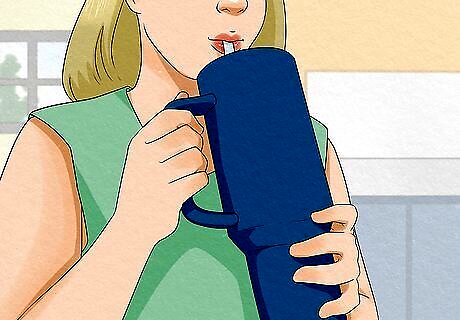
Help the person stay hydrated and resist the urge to drink alcohol. Part of the habit of drinking is having a drink in your hand. Your friend or family member will find it easier to resist temptation if they already have something to drink. You can also help them stay well-hydrated, which will improve their health and make them feel better. If the person had a go-to mixed drink, see if you can make a non-alcoholic version for them. That way, they'll have their favorite flavor without the alcohol.
Keep alcohol out of the home.
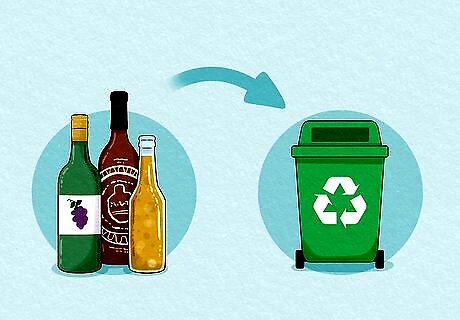
Help the person create an alcohol-free environment. When someone's trying to quit alcohol, it helps if they don't have any temptations around. Help them clean out the alcohol in their home, as well as any mixers or related paraphernalia. If you live with them, make a commitment to quit drinking around them for at least a short period of time. If you don't have a problem with alcohol or don't want to quit yourself, make an effort not to drink around them while they're trying to quit—at least for the first 30 days or so.
Cook healthy meals for the person.
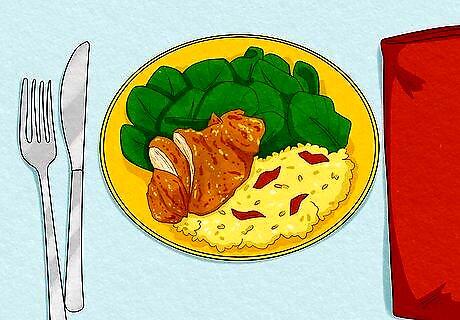
Dropping off a healthy meal shows you care for the person. If your friend or family member previously ate a lot of fast food or snacks, a healthy meal can help get them on the right track toward wellness. Make something that will last for a couple of days and take it to them to help them get their diet back on track. If you live with the person, make a couple of dishes for the week and put individual servings in the fridge for meal prep so they don't have to worry about making meals throughout the week. Quitting drinking can be mentally and physically draining. The more practical things like this you can do to help the person, the less likely they'll be to slip up.
Suggest activities that don't involve drinking alcohol.
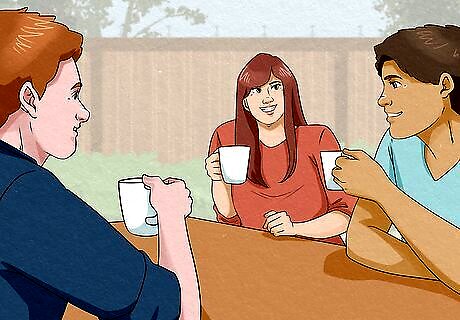
Plan alcohol-free outings so the person doesn't feel left out. It can be especially difficult to quit drinking if you feel like your social life revolves around alcohol. Show your friend or family member you care about them by creating opportunities for them to socialize without alcohol. Here are some suggestions: Going for a hike together Meeting at a café instead of a bar Checking out an art exhibit or museum Playing miniature golf
Offer to drive the person to therapy or group meetings.
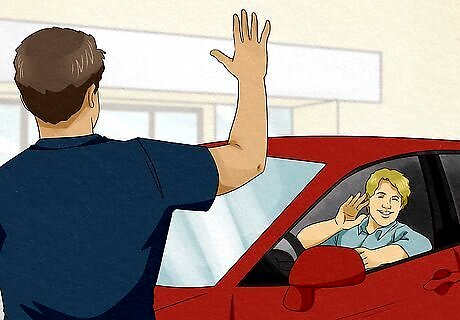
Practical support helps the person eliminate excuses. If your friend or family member has a hard time getting motivated, giving them a ride is one way you can get them to keep up with their commitments. Since you're also holding them accountable, they'll be more likely to follow through. Remember that someone who's just quit drinking is likely to feel run-down or lethargic, especially for the first couple of weeks. Giving them rides and helping with chores are things that will help keep them on the right path.
Be patient and listen to the person.

Encourage them to talk about their thoughts and feelings. Actively listen to them and validate their feelings. Let them know that you empathize with their situation and you aren't going to judge them or criticize them. Sometimes they'll just need to vent, and that's okay! Lending an ear is sometimes the best way to show that you care. Keep in mind that often, in these situations, the person doesn't want advice. They don't want you to tell them what they should do—they just want you to be a sounding board. Check in on your friend or family member regularly and let them know that you're always there if they ever need someone to talk to.
Help the person find healthier ways to deal with stress.
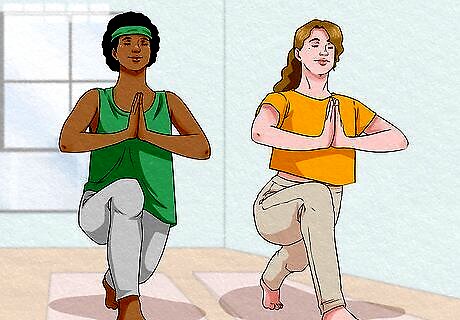
Direct the person toward coping skills that don't involve alcohol. Often, people drink as a way of coping with stress, social anxiety, or other mental health issues. When they stop drinking, these issues will come to the surface. Suggest different activities, including exercise, that will relieve stress in a positive way. Check out breathing exercises and meditation techniques. If you meditate or do yoga, you might invite your friend or family member to do those things with you. Ask them how they're sleeping or if they want you to help them find new tricks that will help them relax. There's no one-size-fits-all approach, here—different people will find different techniques work best for them.
Take care of yourself.

You have to help yourself to be strong enough to help someone else. Supporting someone who's quitting drinking can be stressful in and of itself. But if you're feeling frazzled and stressed out, you won't be as much help to your friend or family member. Take time for self-care and avoid putting your own needs on the back burner. If you need to take time for yourself, that's okay! You might tell them, "I understand that you need me, but I need to take care of myself this evening. I'll give you a call to check in later tonight."
Set boundaries to keep from getting burned out.
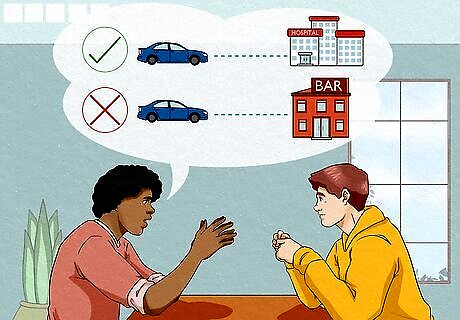
Be clear about what you are and aren't willing to do to help them. It's okay to have limits—you can't do everything. Think in advance about what you're willing to do for your friend or family member and let them know. If something's crossing the line or putting too much strain on you, tell them that's something you're not willing to do. For example, you might be willing to drive them to work or to appointments during the day, but you're not willing to pick them up if they go out drinking. Avoid enabling the person. Regardless of whether they decide to quit or not, be clear that you'll no longer cover for them or make it easier for them to drink. Revisit your boundaries every few weeks and adjust them as necessary depending on how your friend or family member is doing.
Find professional help to support both of you.
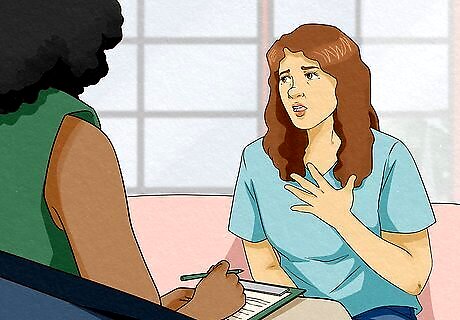
It's okay to admit that you can't do this alone. If your friend or family member has a more serious problem with alcohol, you might need help from a doctor, therapist, or counselor. These professionals will support both of you and help your friend or family member get the treatment they need. Without professional help, people who have a serious problem with alcohol are more likely to relapse. The FDA has approved several drugs, including naltrexone, acamprosate, and disulfiram, to treat alcohol use disorder. When prescribed by your local doctor or an online clinician, they can reduce cravings and help people stop drinking alcohol.
Get medical help for physical withdrawal symptoms.
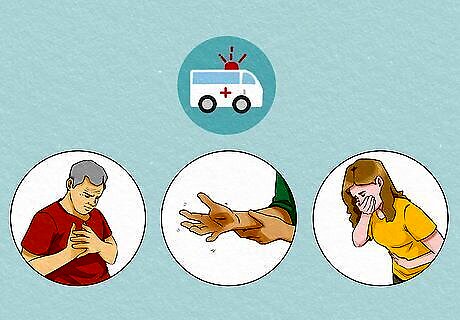
Call emergency services if the person starts going into withdrawal. First, call the person's doctor so they're involved and aware of the situation. They might refer the person to treatment or prescribe medications that can ease withdrawal symptoms and curb cravings. Symptoms of physical withdrawal include severe anxiety, fluctuations between hot and cold, sweaty or clammy skin, a rapid heart rate, nausea or vomiting, and shaking or tremors (especially in hands).

















Comments
0 comment